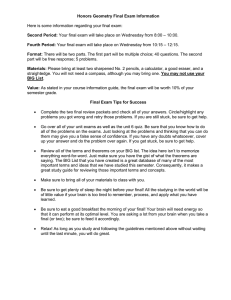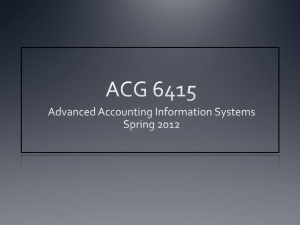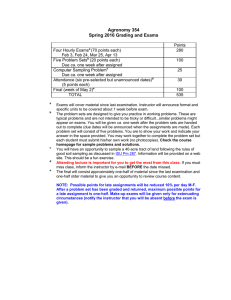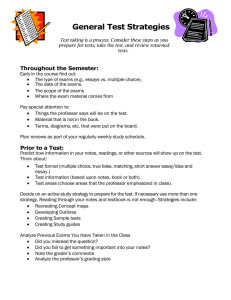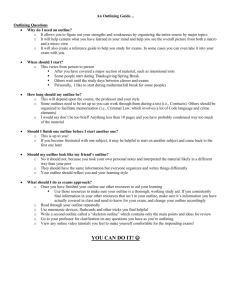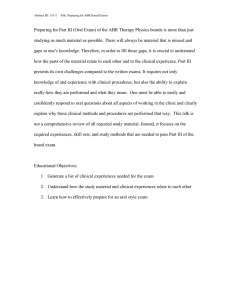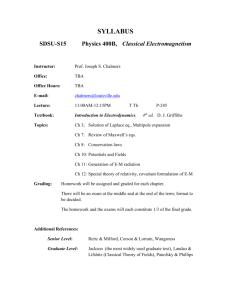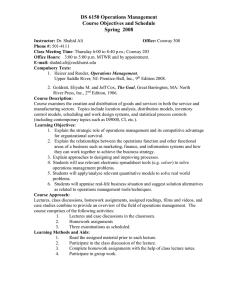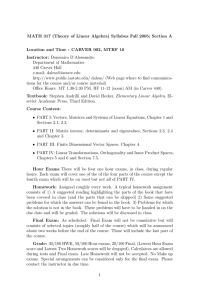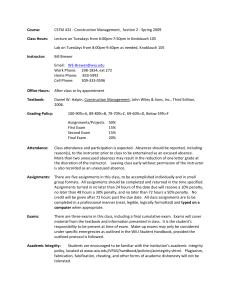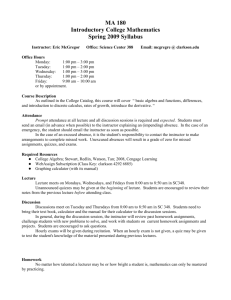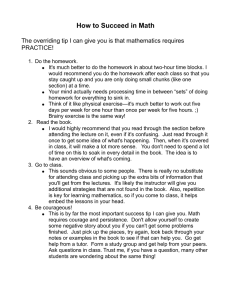Exam Success: Preparing for Exams
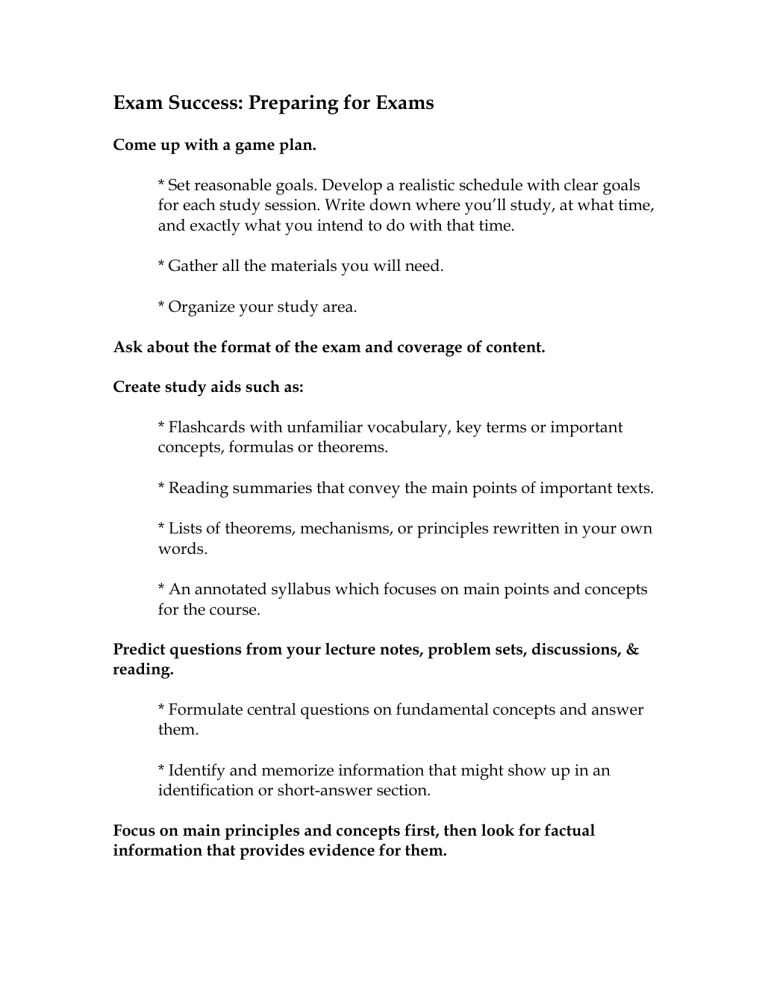
Exam Success: Preparing for Exams
Come up with a game plan.
* Set reasonable goals. Develop a realistic schedule with clear goals for each study session. Write down where you’ll study, at what time, and exactly what you intend to do with that time.
* Gather all the materials you will need.
* Organize your study area.
Ask about the format of the exam and coverage of content.
Create study aids such as:
* Flashcards with unfamiliar vocabulary, key terms or important concepts, formulas or theorems.
* Reading summaries that convey the main points of important texts.
* Lists of theorems, mechanisms, or principles rewritten in your own words.
* An annotated syllabus which focuses on main points and concepts for the course.
Predict questions from your lecture notes, problem sets, discussions, & reading.
* Formulate central questions on fundamental concepts and answer them.
* Identify and memorize information that might show up in an identification or short-answer section.
Focus on main principles and concepts first, then look for factual information that provides evidence for them.
* Reorganize course material conceptually; don’t necessarily follow the order your instructor used to present it in class.
* Pay attention to concepts instructors particularly focused on in class or in homework, quizzes, problem sets, and other assignments.
For quantitative courses, work through problems.
* Work through problems on your assignments, the end of the chapter, or old exams.
* Don’t think of each problem as unique; look for similarities.
* Don’t consult the answer key until you have tried to solve the problem yourself.
* Review my tipsheet on preparing for problem-solving exams.
For essay exams, practice writing your response.
* Make an outline to structure your response.
* Provide specific examples of your points .
* Evaluate your response and remember what you left out for next time.
Try to explain difficult material to someone else.
* You can do this with a study partner or in study groups. You can also work with others to generate questions.
Take a practice exam:
* Take an old exam.
* Time yourself and use only the materials you will have at the exam.
* Review your answers and focus on anything you got wrong or forgot.
If after reviewing, you still don’t understand something, ask the instructor for clarification after class or at a review session.
Remember to eat well, exercise, and get enough sleep. You’ll study and perform better.
Prepared by B. Faus based on a Tipsheet from The McGraw Center Princeton University
